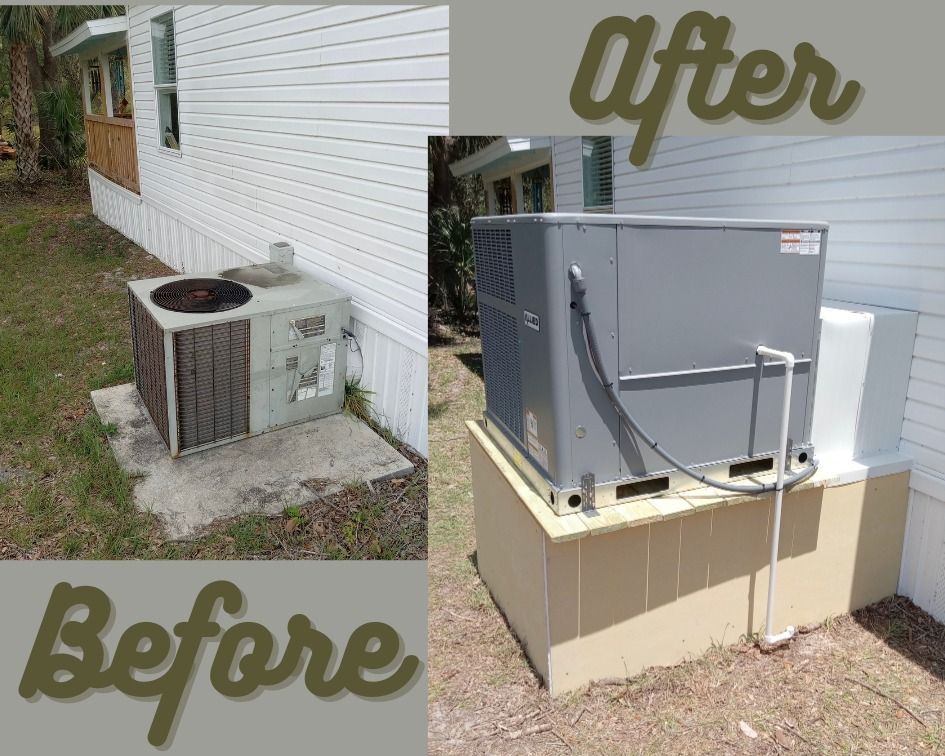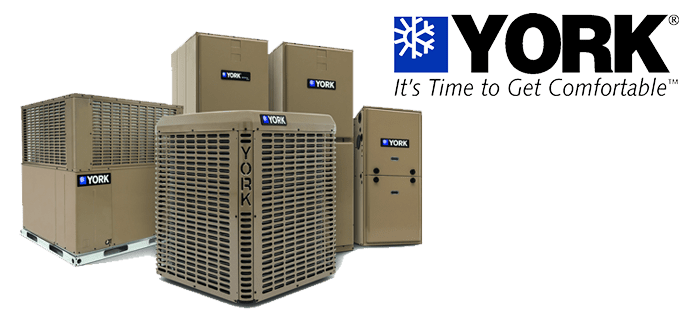AC Installation

Choosing the right air conditioning system and ensuring its proper installation are pivotal steps towards a comfortable home environment, especially during those sweltering summer days. A well-installed AC not only keeps your interiors cool and refreshing but also runs efficiently, saving you from unnecessary energy costs. The importance of professional AC installation cannot be understated, as it sets the foundation for the longevity and performance of your unit. Here, we'll explore everything homeowners need to know about air conditioner installations, ensuring you make informed decisions every step of the way.

Signs You Need A New Air Conditioner Installed
Age Of The Unit
Like all machines, air conditioners have a defined lifespan. Most units are designed to last 10-15 years with regular maintenance. If your AC is nearing or has surpassed this age bracket, it's time to consider a new installation. Older units are not just prone to breakdowns but are also less energy-efficient.
Frequent Repairs
If your AC requires constant tinkering and frequent visits from the technician, it might be signaling a deeper, underlying issue. Regular malfunctions are not just a drain on your pocket but also an indication that the unit is nearing the end of its functional life.
Rising Energy Bills
An unexplained surge in your energy bills often points to inefficiencies in your air conditioning system. As units age, they work harder to produce the same cooling effect, consuming more energy in the process. Investing in a new unit can offset these rising costs in the long run.
Inconsistent Temperatures
Is your AC struggling to maintain a consistent temperature across rooms? This inconsistency can be due to wear and tear or even incorrect sizing during the initial installation. Either way, it might be time for a replacement.
Strange Noises Or Smells
While some noises during start-up and shutdown are standard, any grinding, squealing, or grating sounds can be a cause for concern. Similarly, pungent or musty smells indicate mold growth or burnt-out wire insulation, necessitating an in-depth look.
Recognizing these signs early on can save you from unexpected breakdowns and discomfort, especially when you need your AC the most. Upgrading your system can be an investment in your comfort, peace of mind, and the overall value of your home. A trained and experienced air conditioning expert from Sweet Air Conditioning & Heating Inc can help you identify if your system just needs some maintenance and repairs or if its time to consider replacement.
When To Repair VS Replace
Navigating the decision between repairing an existing unit or opting for a complete replacement can be challenging. However, with the right knowledge, homeowners can make informed choices that favor both comfort and cost-effectiveness.
Cost-Benefit Analysis
Begin by assessing the costs of repeated repairs over the past year. If you find yourself pouring money into frequent fixes, it might be more economical in the long run to invest in a new unit. Often, the cumulative cost of repairs can approach or even surpass the price of a fresh installation.
Age Considerations
The age of your AC unit is a critical factor. If it's older than 10 years and facing significant issues, replacement is often the better option. Newer models are not only more efficient but come with modern features that enhance comfort and user experience.
Efficiency Concerns
Older models tend to be less energy-efficient. With technological advancements, newer AC models boast improved energy ratings, which translate to lower electricity bills. Even if your old unit seems to be working fine, it might still be using more energy than necessary.
In essence, while repairs can extend the life of your unit momentarily, there comes a point where replacement becomes the more sensible and sustainable option. Always weigh the immediate costs against the long-term benefits to make the best decision for your home.
Key Terms to Know When Choosing an AC Unit
Understanding the technical jargon can greatly simplify the AC selection process. Here are some fundamental terms and their relevance.
SEER (Seasonal Energy Efficiency Ratio)
It measures the cooling efficiency of an air conditioner over an entire season. A higher SEER rating indicates better energy efficiency, potentially resulting in lower electricity bills.
BTU (British Thermal Unit)
This is a measure of how much heat an AC unit can remove from a room in an hour. Choosing the right BTU rating is crucial; too high might result in an inefficient operation, while too low might leave your room inadequately cooled.
Compressor
The heart of an AC unit. It's responsible for circulating the refrigerant necessary for removing heat and moisture from the air. An efficiently functioning compressor is crucial for the optimal performance of the system.
Refrigerant
A chemical compound that absorbs and releases heat, aiding in the cooling process. Modern ACs use eco-friendly refrigerants that are less harmful to the environment.
HVAC
An acronym for Heating, Ventilation, and Air Conditioning. While AC deals primarily with cooling, HVAC systems address broader climate control needs, ensuring optimal temperatures year-round.
Empowered with this knowledge, homeowners can engage in more informed discussions with service providers, ensuring they choose the best AC unit tailored to their needs.
Factors To Consider When Choosing A New AC Unit
Purchasing a new air conditioner is a significant investment. To ensure you get the best return on that investment, consider the following crucial factors.
Size Of Your Home
It's essential to get a unit that's appropriate for the size of your space. An undersized AC will struggle to cool your home efficiently, while an oversized one can lead to excessive humidity and frequent on-off cycles.
Energy Efficiency
Modern AC units come with energy efficiency ratings. An air conditioner with a higher SEER rating might cost more upfront but can save you money in the long run with lower energy bills.
Brand Reputation and Warranty
Consider brands with a good track record for durability and customer service. A robust warranty can also provide peace of mind, knowing that you're covered for certain repairs or replacements.
Future Maintenance Needs
Some units might be more demanding in terms of maintenance. Evaluate potential ongoing costs and your willingness to commit to regular servicing.
Noise Levels
Especially if your AC unit is near bedrooms or study areas, a quieter model might be worth the investment. Look for units with noise-reducing features or those known for quiet operation.
By carefully assessing your unique needs and being aware of these factors, you can make an informed choice that guarantees comfort and efficiency.
The Installation Process
Professional installation ensures that your AC runs optimally and safely. Here's a brief walkthrough of what homeowners can expect.
Pre-Installation Assessment
Before the installation day, a technician will visit your home to assess the current system, understand the layout, and identify any unique requirements. This step ensures that the new system is tailored perfectly to your home's needs.
Old Unit Removal
If you're replacing an old AC, the first step would involve safely dismantling and removing it. This process includes disposing of old refrigerants according to environmental guidelines.
Setting Up The New System
Depending on the type of AC, this step might involve installing outdoor units (for split systems), setting up ductwork (for central systems), or mounting indoor units.
Electrical and Ductwork Checks
Ensuring all electrical connections are secure and that the ductwork is sealed properly is crucial to prevent energy wastage and maintain system efficiency.
System Testing
After installation, the technician will run the system to check if it's cooling effectively. They will also ensure that all components, like thermostats and controls, are working seamlessly.
Post-Installation Guidance
Before leaving, a good technician will provide homeowners with basic guidance on operating the new AC, maintenance tips, and answer any questions.
Remember, a well-executed installation can significantly extend the life of your AC, ensuring you get the most out of your investment.
Benefits of Professional AC Installation
While it might be tempting to cut corners or opt for less experienced technicians to save on upfront costs, professional AC installation offers long-term benefits that are hard to overlook. Luckily, Sweet Air Conditioning & Heating Inc provides skilled, experienced service at an fair price.
Properly Optimized Performance
Professionals ensure the AC system is calibrated and installed correctly, ensuring maximum efficiency and performance.
Longevity
A correctly installed unit faces fewer breakdowns, reducing wear and tear and potentially extending its lifespan.
Safety
Dealing with electrical components and refrigerants requires expertise. Professionals adhere to safety guidelines, minimizing risks to both the home and its residents.
Warranty Protection
Many manufacturers stipulate professional installation as a condition for honoring warranties. An amateur installation might void your unit's warranty.
Peace of Mind
Knowing that experts have handled your AC installation means fewer worries about potential issues. You can rest easy, assured of the quality and reliability of the work.
Cost Savings
While there might be an initial investment, proper installation can lead to energy savings, fewer repairs, and a longer lifespan for the unit, saving money in the long run.
Investing in professional installation is essentially investing in the future comfort and efficiency of your home.

